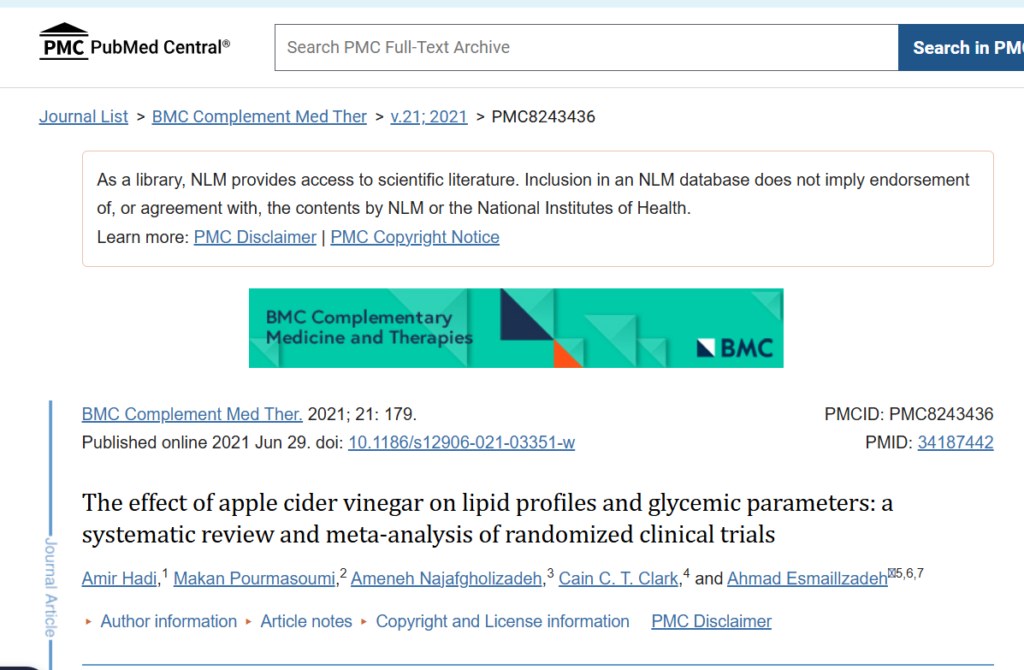Apple Cider Vinegar Health Benefits

Is apple cider vinegar the new superfood?
Apple cider vinegar (ACV) has been a household staple for decades. It adds a tangy kick to salad dressings and marinades.
Lately, however, ACV has been taking the wellness world by storm.
It’s touted as a cure-all for everything from weight loss to blood sugar control.
But can this pantry staple live up to the hype?
This blog post explores the science behind ACV’s potential health benefits.
We’ll explore whether it can help you lose weight, manage blood sugar, or boost your well-being.
We’ll also cover critical safety rules and look at tasty ways to add apple cider vinegar to your diet.
Ready to separate fact from fiction?
Let’s dive into the world of apple cider vinegar!
Potential Health Benefits of Apple Cider Vinegar
Apple cider vinegar boasts several potential health benefits. Some benefits have more robust scientific backing than others.
Check this video from Dixon Organics.
Dixon Organics/Health Benefits of ACV
Here’s a closer look at the most promising areas of research:
Is Apple Cider Vinegar Good for Weight Loss?
ACV may be suitable for weight management.
One mechanism within it is potentially curbing appetite.
The acetic acid in ACV may promote feelings of fullness, leading you to eat less.
Additionally, ACV may influence blood sugar control, indirectly affecting weight loss.
By improving insulin sensitivity, ACV may help regulate blood sugar spikes. These spikes trigger cravings.
Reducing Blood Sugar Levels
ACV shows promise in managing hypertension in individuals with type 2 diabetes.
Studies show that using ACV before meals can help lower blood sugar spikes.

The acetic acid in ACV slows the breakdown of carbohydrates in the gut, leading to a slower rise in blood sugar.
However, ACV should not replace prescribed diabetes medications.
ACV and Heart Health
Some research suggests that ACV may have benefits for heart health.
Studies show that consumption of ACV may lead to modest reductions in “bad” LDL. It also impacts cholesterol and triglycerides and increases “good” HDL cholesterol.
However, there is a need for more research to understand ACV’s impact on heart health.
Promoting Gut Health
Unfiltered ACV has the cloudy “mother.”
It may benefit gut health.
The “mother” contains probiotics.
These live bacteria in your stomach contribute to a healthy gut microbiome.
A healthy gut microbiome impacts various health benefits. These include improved digestion and immune function.
But, it’s important to note that pasteurized ACV will not contain live probiotics.
Remember
While these studies show promise, we need more research. Research to enable us to understand the long-term effects of ACV consumption.
Important Considerations
Apple cider vinegar boasts potential health benefits. However, before using it, some essential factors should be considered.
Dosage and Safe Consumption
ACV is acidic, and undiluted consumption can irritate your throat and oesophagus. It’s essential to dilute ACV with water before consumption.
A standard recommendation is 1-2 tablespoons (15-30 ml) diluted in a large glass of water. Start with a smaller amount and increase if tolerated.
Side Effects and Potential Risks
Excessive ACV consumption can lead to side effects like:
- Tooth enamel erosion: The acidity of ACV can erode tooth enamel over time. Consider using a straw when drinking ACV. Dilute it in water and rinse your mouth with water afterwards.
- Digestive issues:
- ACV may cause heartburn, nausea, or stomach upset in some individuals. Stop using it if you experience any discomfort.
- Medication interactions:
- ACV may hinder certain medications, such as diuretics and blood-sugar-lowering drugs. Consult your dietitian or any doctor before using ACV if you take any medications.
Not a Miracle Cure
Remember, ACV is not a magic bullet. It will not help with weight loss, blood sugar, or other health conditions.
A healthy lifestyle consists of a balanced diet and regular exercise. It would help if you practised these for your well-being. ACV may complement your efforts but shouldn’t replace healthy habits.
How to Incorporate ACV into Your Diet
Apple cider vinegar’s tangy flavour can add a delicious twist to your meals.
Here are some ways to incorporate ACV into your diet safely and enjoyably:
Salad Dressings
ACV is a classic ingredient in homemade salad dressings.
Mix olive oil, Dijon mustard, honey, and your favourite herbs and spices to make a healthy and tasty vinaigrette.
Marinades
The acidity in ACV helps tenderize meat and fish while adding a burst of flavour. Use ACV in marinades for chicken, pork, or tofu alongside herbs, spices, and your favourite oils.
Sauces and Dips
ACV can add a delightful tang to sauces and dips. Add a splash to your following barbecue sauce, chimichurri, or yoghurt-based dip.
Beverages
A popular way to consume ACV is to dilute it in water.
Mix 1-2 tablespoons of ACV with a glass of water and add a touch of honey or lemon for a refreshing drink.
You can also incorporate ACV into herbal teas or infused water recipes.
Cooking Applications
A small amount of ACV can enhance the flavour of savoury dishes like soups, stews, and stir-fries. Experiment by adding a teaspoon or two during the cooking process.
Here are some additional tips:
Tip #1: Start Slow:
If you’re new to ACV, begin with a diluted form and gradually increase the amount as tolerated.
Tip #2: Listen to Your Body:
Stop use if you experience any discomfort.
Tip #3: Quality Matters:
Choose organic, raw, and unfiltered ACV with the “mother”. It has more health benefits.
Adding ACV to your diet can let you enjoy its taste. You can also explore its health benefits.
Remember, moderation and safe consumption practices are essential.
Conclusion
Apple cider vinegar offers fascinating culinary versatility and potential health benefits.
From aiding weight management to supporting gut health, ACV may promote well-being.
Ready to explore the world of ACV?
We’ve provided some delicious and safe ways to incorporate it into your diet.
So, grab a bottle and get creative.
In the comments below, please tell us how you’re using ACV to add a tangy twist to your health routine!
Bonus Section: Apple Cider Vinegar FAQs
Apple cider vinegar has sparked much curiosity, and there is good reason! Here, we answer some of the most common questions that people have about ACV:
Q: Is Bragg’s ACV the best brand?
There are many brands of ACVs available, and Bragg’s is a popular choice.
Always look for organic, raw, and unfiltered types. They should have the “mother” for more health benefits.
Ultimately, the “best” brand depends on your preferences and what is readily available.
Q: Can I take ACV shots?
ACV shots are trendy. But remember that strong vinegar can harm your teeth and oesophagus. It’s always best to dilute ACV in water before consumption.
Q: How much ACV should I take daily?
There’s no one-size-fits-all answer, and research on optimal dosages is ongoing.
The standard recommendation is to dilute 1-2 tablespoons (15-30 millilitres) in a big glass of water.
Start with a smaller amount and gradually increase if you can tolerate it. Listening to your body and discontinuing use if you experience discomfort is essential.
Q: Can One use apple cider vinegar for cleaning or beauty purposes?
ACV has various household uses, including as a natural cleaning agent.
However, it would help if you diluted skin and hair applications. This method is crucial to avoid irritation.
Always do a patch test on a small skin area before applying it more widely.
Consult reliable online resources or a dermatologist for guidance on ACV.
Remember, this blog post provides general information. Please do not take it as medical advice.
Consult your health professional before making significant dietary changes with apple cider vinegar.
